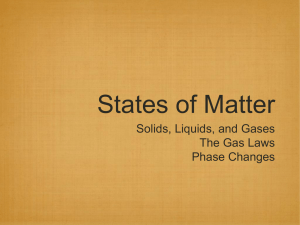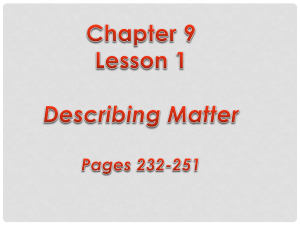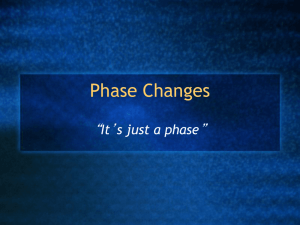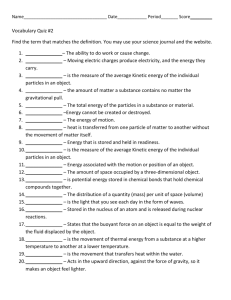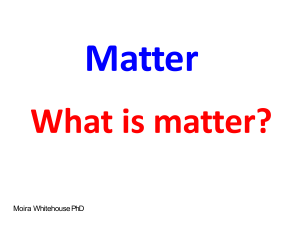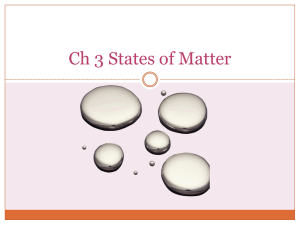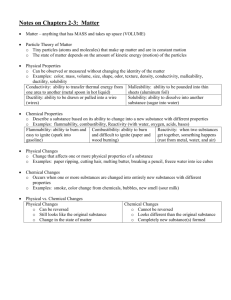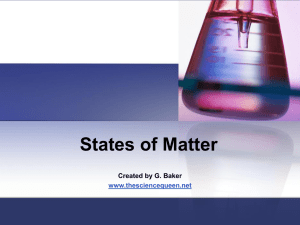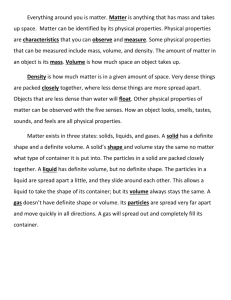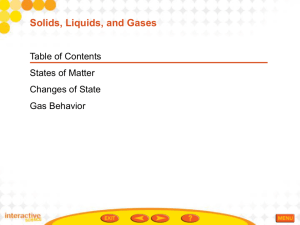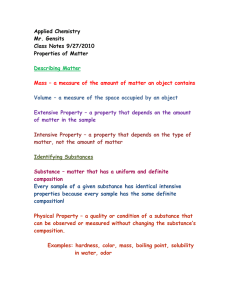States of Matter:Gas Laws
advertisement
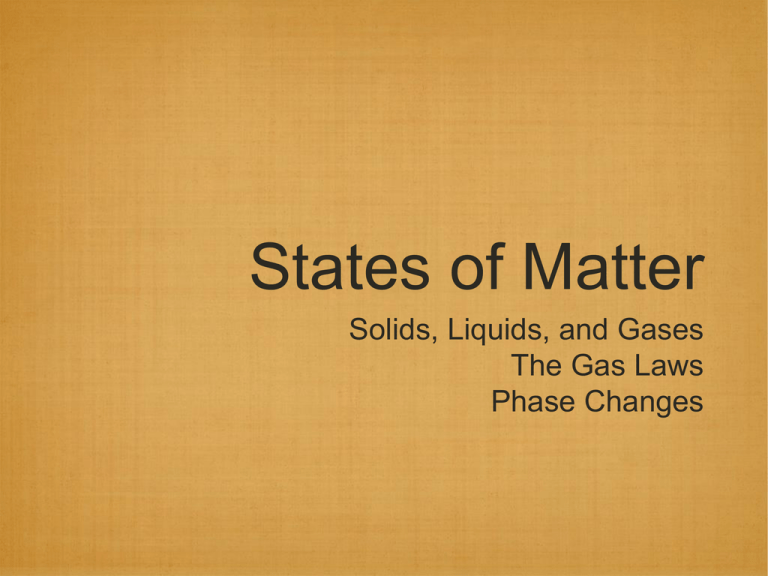
States of Matter Solids, Liquids, and Gases The Gas Laws Phase Changes Mixtures Solutions Substances dissolved in a homogeneous mixture. Mixtures Suspensions a heterogeneous mixture that separates into layers over time. Mixtures Colloids contains some particles that are intermediate in size between the small particles in a solution and the larger particles in a suspension. Do not separate into layers States of Matter Solids Definite Shape and Volume Very little Kinetic movement between atoms States of Matter Liquids Definite volume, but takes shape of container some kinetic movement of atoms States of matter Gases No definite size or shape Lots of kinetic movement The Gas Laws Pressure the result of a force distributed over an area. Collisions between particles of a gas and the walls of the container cause the pressure in a closed container of gas. The Gas Laws Dalton’s Law of Partial Pressure partial pressure of a gas - the pressure a gas would exert if it were alone in the container. The sum of the partial pressures is equal to the total pressure of the container. Ptotal= P1+P2+P3 Gas Laws Factors that affect Gas Pressure Temperature (In Kelvin) Volume Number of particles Charles’s Law The volume of a gas is Directly proportional to its temperature in Kelvins V1=V2 T1 T2 Boyle’s Law The volume of a gas is inversely proportional to its pressure. P1V2=P1V2 Combined Gas Law Describes the relationship between temperature, volume and pressure of a gas. P1V1=P2V2 T1 T2 Phase Changes A phase change is the reversible physical change that occurs when a substance changes from one state of matter to another Phase Changes • There are 6 common phase changes • Melting • Freezing • vaporization • condensation • Sublimation • deposition Phase Change • The temperature of a substance does not change during a phase change. Phase Changes • Energy is either absorbed or released during a phase change • Endothermic- system absorbs energy • Heat of Fusion • Exothermic- system loses energy to the surroundings.
